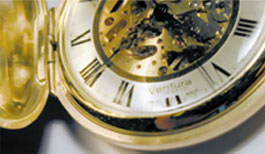Sally Kalmus is qualified in Clinical Hypnotherapy and Reflexology and is a full member of the British Society of Clinical Hypnosis and the Federation of Holistic Therapists.
SERVICES
Welcome to The Complementry Practice
Sally has been running her clinics in Leicestershire for the past 7 years where she has gained a wealth of experience in treating stress related conditions and offers a free initial consultation to allow patients the opportunity to discuss any queries they may have about treatments. She is available in clinic everyday including Saturday mornings and some late evenings.
The Complementary Practice has a growing number of patients who travel from all areas both locally and from as far away as Wales and the North. Sally's two clinics are based at Mountsorrel and Glenfield and offer a safe, comfortable environment.
Call Sally now to book an appointment. She would be delighted to offer her advice and provides a fully confidential service.
What is reflexology
Reflexology is a specific pressure technique applied to the feet or hands where all the internal organs and body structures are mapped in miniature. It gives an amazing insight into the body's mental and physical condition whilst being a simple non invasive treatment which helps to detect and correct imbalances.
Where did reflexology come from?
There is evidence of reflexology being practiced as early as 2330BC on a tomb of Anthmahor at Saqqara in Egypt. This was also known as the physicians tomb. A doctor William H Fitzgerald, who graduated in 1885 at Vermont University developed the initial practice of reflexology in Western society. Reflexology was introduced to Britain in the early 1960's and it's popularity continues to grow.
How many treatments do I need and how long is a treatment?
A treatment normally lasts about one hour although the first appointment is normally one and a half hours as a full comprehensive case history will be taken. In some instances a doctor's permission may be required before treatment can begin, for example, if you have diabetes. An individual and confidential record card is kept with relevant notes for future treatments. A course of six treatments would normally be required on a weekly basis and improvement can be seen in as little as one treatment.
What happens during a reflexology treatment?
You remain fully clothed, simply removing socks and shoes and will be invited to relax on a treatment couch or recliner. Feet and/or hands are cleansed at the start of the treatment before a variety of reflexology techniques are used.
After your treatment.
To gain maximum benefit from your reflexology treatment it is important to rest afterwards - this helps your body's natural healing process. Drink plenty of water over the next few days - this helps flush away toxins.
What is Hypnosis?
The actual experience of being hypnotised is very difficult to describe, neither asleep nor awake. All hypnotic states are characterized by a tremendously pleasant state of relaxation, an altered state of consciousness into which individuals allow themselves to enter so that desired, beneficial suggestions may be given directly to the unconscious mind. Thus, hypnosis is a natural, effective way of making contact with the inner (unconscious) self, a source of many of our problems as well as a tremendous reservoir of unrecognized potential strength and knowledge, ie. the forgotten assets. Nobody can ever be hypnotised against their will and, even when hypnotised, people can still reject any of the suggestions given if they are not appropriate. Hypnotherapy means the use of hypnosis for the treatment and relief of a variety of somatic and psychological symptoms.
Clinical Applications of Hypnosis
Modern hypnotherapists use hypnosis not only for medical purposes, but also as an aid for the resolution of many problems of psychological origins. It is estimated that approximately 85% of people of all age groups will readily respond to clinical Hypnotherapy. It is often successful when other, more conventional methods of treatment have failed. Listed below are some of the conditions for which Hypnotherapy is indicated as a practical treatment, within these are specific issues such as exam nerves, taking driving tests, tension headaches, achieving your life goals and much, much more.
Service Categories
Hypnotherapist, Reflexology
|
|
 |